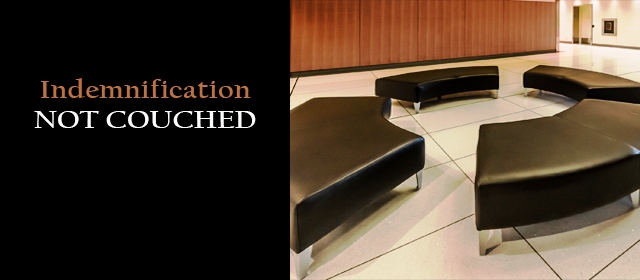Forum Selection Clause Gone Wrong; and Indemnification Woes

Franchisor 101: Forum Selection Clause Gone Wrong
A California Court of Appeal held that courts should not enforce forum selection clauses in contracts that also contain a jury waiver. For franchisors that have California franchisees, this ruling could complicate the ability to litigate claims in their chosen forum.
The plaintiff operated a cigar store in California. Plaintiff sued the lessor of credit card processing equipment for fraud. The lease called for New York law to apply and required suits to be exclusively in New York state and federal courts. The lease also had a mutual waiver of trial by jury.
The suit was brought in California. The defendant moved to dismiss the case based on the agreement’s designation of New York as the place for lawsuits. The trial court granted defendant’s motion. The plaintiff appealed, arguing that enforcing the New York forum clause and New York choice of law would deprive him of his right to a jury trial. In California, pre-dispute jury waivers are void.
A forum selection clause is generally given effect. The party opposing enforcement of the clause has the burden to prove why it should not be enforced. In this case, the court ruled that when a claim concerns unwaivable rights under California law, the burden shifts to the party seeking to enforce the forum clause to show that litigating in the chosen forum will not reduce the other party’s California law rights. The appellate court held that California’s prohibition against pre-dispute jury waivers is an unwaivable right that can trigger a burden shift. The court found that the lessor failed to satisfy its burden because New York is willing to enforce a pre-dispute waiver of a party’s right to jury trial.
In California, the Franchise Relations Act often protects franchisees in the state from clauses that would otherwise force them to file their claims in another state. The Act provides that a provision in a franchise agreement restricting the forum for litigation to another state is void.
Franchisors with California franchisees and other types of forum selection clauses, as well as manufacturers and suppliers not subject to the Franchise Relations Act, should weigh the value of avoiding a California forum for lawsuits brought by California franchisees, distributors and customers, against the cost of giving up a jury trial waiver or selecting an alternative dispute resolution procedure, such as face-to-face meetings with the franchisor, non-binding mediation, or arbitration, in place of litigation.

Franchisee 101: Indemnification Woes
A federal appellate court held that a franchisee must indemnify a franchisor for its litigation defense costs, vacating a district court’s order of summary judgment for the franchisee.
Aaron’s Inc., a home furnishings retailer and franchisor, required the franchisee to indemnify Aaron’s for litigation expenses incurred due to the franchisee’s conduct. A franchisee’s former employee sued the franchisee and Aaron’s for wrongful termination. The franchisee’s insurer retained counsel to defend both the franchisee and Aaron’s.
During the litigation, Aaron’s hired its own attorney and settled with the franchisee’s former employee. Aaron’s then demanded indemnification from the franchisee for expenses of defending itself and settling. The franchisee contested Aaron’s claim that the franchise agreement required the franchisee to indemnify for Aaron’s defense and settlement costs. The franchisee argued that the franchise agreement was ambiguous about the duty to indemnify when Aaron’s replaced franchisee’s chosen counsel with Aaron’s own counsel. Aaron’s argued that the franchise agreement required indemnification because it did not say that Aaron’s decision to change counsel forfeited its right to indemnification.
The court agreed with Aaron’s, concluding the franchise agreement was unambiguous. The franchise agreement required the franchisee to indemnify Aaron’s from all claims resulting from action or inaction by the franchisee or operation of the franchised store. The franchise agreement also provided that Aaron’s “shall have the option, in its sole discretion, to defend any action or to allow Franchisee to defend such action with counsel satisfactory to Franchisor.” The court found this unambiguously required the franchisee to indemnify Aaron’s regardless of Aaron’s replacement of the franchisee’s chosen counsel.
Franchisees should review indemnification provisions of the franchise agreement with counsel prior to signing to understand the scope of their duties in the event of a third-party claim, which can be costly. Indemnification provisions often require the franchisee to reimburse the franchisor for attorneys’ fees and expenses of counsel chosen by the franchisor, let the franchisor control settlement decisions and do not let the franchisee use its insurance carrier for litigation before the franchisor chooses its own counsel.